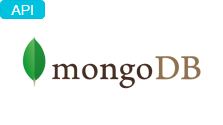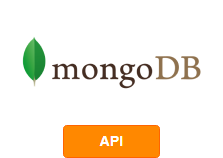MongoDB API

Do you want us to make integration with API MongoDB?
What features are you interested in? This will make the integration more useful to you.
trial access
How to integrate MongoDB and other systems
with ApiX Drive by API
to integrate MongoDB with other systems.
Automation capabilities MongoDB
with other systems by API
The MongoDB will exchange data with other systems according to the specified interval.

- Information will be available after system startup
MongoDB is a document-oriented database management system (DBMS) in NoSQL format that does not require a description of the table schema and is actively used in web development. It comes with a built-in module for developers, which allows you to create websites and applications with its own search engine, support for online transactions, detailed analytics and full adaptability to mobile devices.
Among the features of the MongoDB DBMS, it is worth noting support for ad-hoc queries that can return certain document fields and custom JavaScript functions. The system also maintains indexes and can process replica sets: store two or more copies of data on different nodes. Horizontal scaling is available here using the technique of sharding database objects.
The MongoDB system can be used in a file storage format, for this there are options for data replication and load balancing. Users also have access to built-in tools for working with files and their contents. Separately, it is worth noting support for collections with a fixed size, as well as support for JavaScript in aggregation functions and queries. The system interface contains official drivers for a number of common programming languages.
The MongoDB platform has a wide scope and can be used for a variety of purposes. It can store information about certain events, create document management systems, files or other content based on it. It is also suitable for developing and maintaining e-commerce sites, as well as other types of sites and web applications, mobile applications, games, etc.
One of the key tools of the MongoDB system is the API, the documentation for which is available at this link: https://api.mongodb.com/ Here you can also find a list of drivers for C, C++, C#/.Net, Go , Java, Node.js, PHP, Python, Ruby, Swift and other languages. The MongoDB API allows you to configure the integration of the system with external software, however, programming skills are required to perform this operation. But there is a simpler solution - to take advantage of the no-code capabilities of the ApiX-Drive service and quickly launch a ready-made bundle of systems through a convenient web interface.
that we don’t have?
with your service on this page